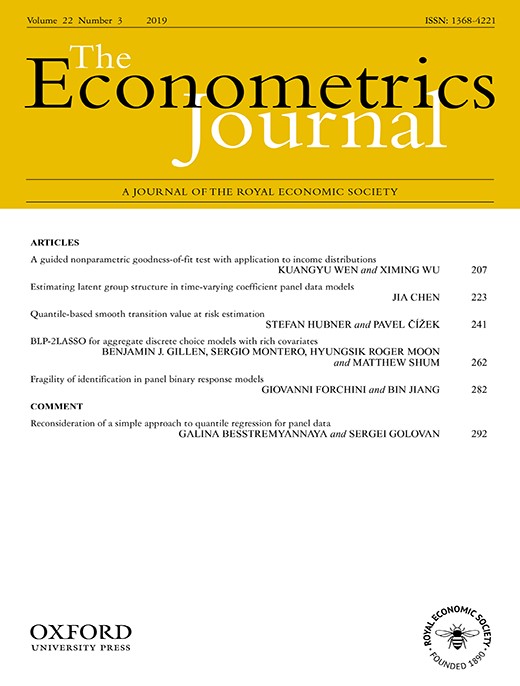-
Views
-
Cite
Cite
Kuangyu Wen, Ximing Wu, A guided nonparametric goodness-of-fit test with application to income distributions, The Econometrics Journal, Volume 22, Issue 3, September 2019, Pages 207–222, https://doi.org/10.1093/ectj/utz007
Close - Share Icon Share
Summary
We have developed a customizable goodness-of-fit test of a parametric density based on its distance to a consistently estimated density. This consistent estimate is obtained via a nonparametric density estimator with a parametric start, wherein the start is set to be the hypothesized parametric density. To cope with the influence of nonparametric estimation bias, nonparametric goodness-of-fit tests have resorted to remedies such as undersmoothing or convolution of the hypothesized density. Our test requires no such devices and possesses enhanced powers against alternative densities because the guided density estimator is free of the typical nonparametric bias under the null hypothesis and attains bias reduction when the underlying density is in a broad nonparametric neighborhood of the hypothesized density. Here, we establish the statistical properties of our test and use Monte Carlo simulations to demonstrate its finite sample performance. We use this test to examine the goodness-of-fit of normal mixtures to the distributions of log income of U.S. states. Although normality is rejected decisively, our results suggest that normal mixtures with two or three components suffice for all but one state.





